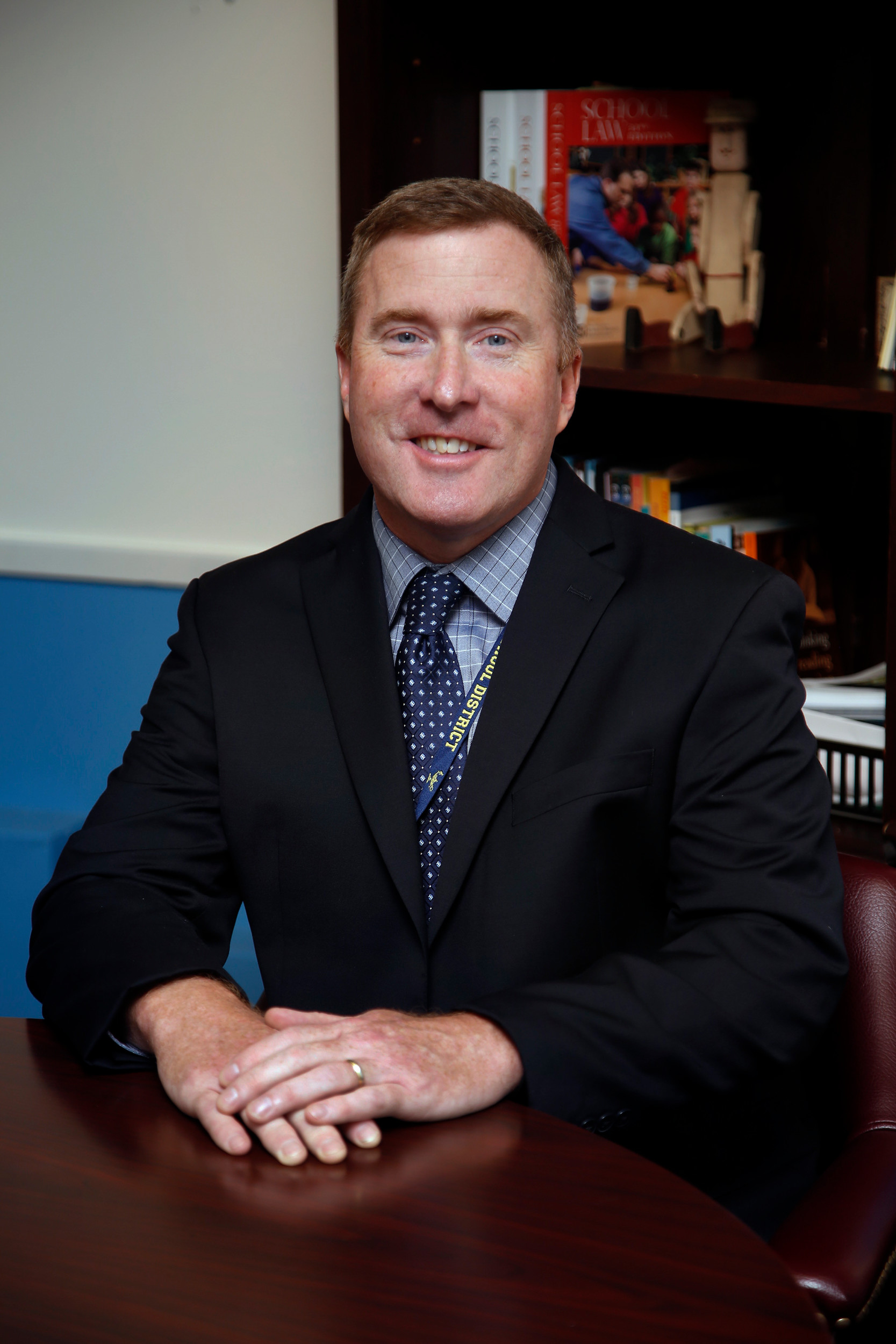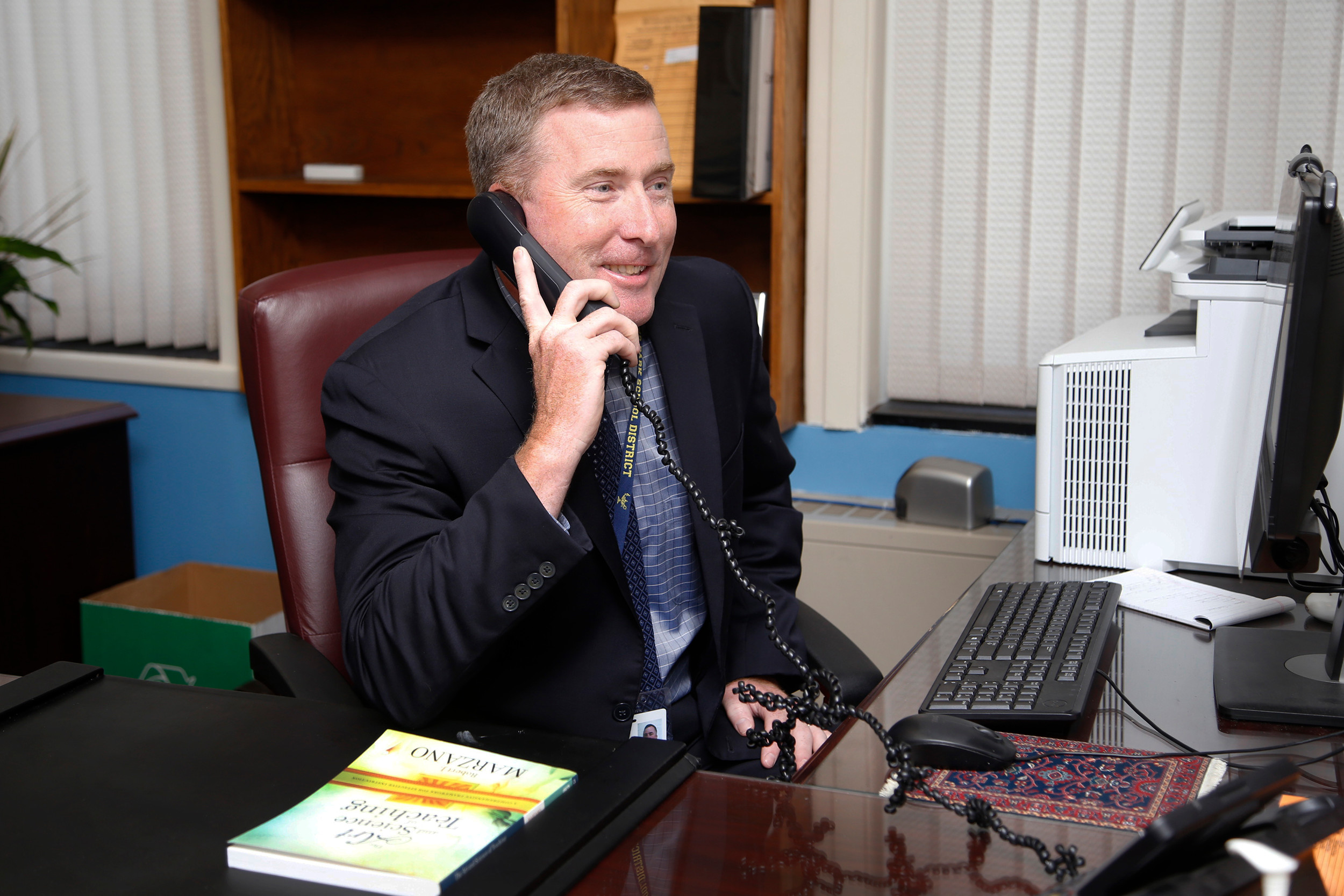Back to school at Lincoln Orens
New principal plans to focus on cooperative classrooms
Since he became the principal of Island Park’s Lincoln Orens Middle School on July 5, Dr. Bruce Hoffman has been getting to know the neighborhood, and his future students.
He regularly goes down to the district’s summer camp to talk to fourth- through eighth-graders about what they like and don’t like about the school. “Fortunately — or unfortunately,” depending on how you look at it, Hoffman said, “we have kids in summer school, and I’ve been able to meet with them and get to know their likes, and what their strengths are.”
Before taking his new position, Hoffman spent 11 years as assistant principal and one year as dean at a middle school in Lindenhurst. Before that he was an elementary school teacher in Dix Hills for three years.
The middle school plays an important role in how students develop, he said. “They’re becoming young adults,” he noted. “They’re learning about themselves, and they’re starting to have a sense of themselves.”
Middle-schoolers, Hoffman said, have a more complicated relationship with rules than elementary school students, whom he described as “rule followers.” “Sometimes they make mistakes,” he said of the older students. “When they do, we’re there to teach them what they could have done better for next time.”
Hoffman’s teaching philosophy is rooted in what he calls “cooperative learning.” “In the classroom,” he said, “you’re going to see what looks basically like groups, but each person in that group has a specific job or task, and they’re held responsible to each other.” He said that the group’s learning tasks would be rotated so that every student would have the chance to develop the skills associated with each role, but the groups would comprise the same students for the entire year.
“They become familiar with the group,” he said, “and they develop bonds with one another.” He added that the benefits of this approach aren’t simply educational, but social as well: “One thing that happens it that it reduces the bullying in those classrooms.”
Students who are more shy develop connections, which means that in the cafeteria they have people to sit with, and that makes all the difference, he said.
Hoffman said he has seen this process work. He told a story about one of his Lindenhurst students, who didn’t have many friends and was “very quiet, very pulled into himself.”
The student’s class was doing cooperative learning, and at the end of the year, his group decided to make a movie. He starred in it and stayed after school to work on it.
“You’d think that’d be the end of it,” Hoffman said. “I actually got an email from the father, saying that it was the first time the kid stayed after school to be part of anything, and the kids had called him to come over on the weekends to hang out … In eighth grade, he had a group of friends. That’s what it’s about.”
Cooperative learning is part of a broader approach, called “21st century skills,” Hoffman said, describing the goal as “getting them career- and college-ready. Getting them ready to work cooperatively, to be good citizens.”
Hoffman said that for Lincoln Orens students, these skills are more important to develop early on than they might be for other students. Other districts funnel their students into a single high school, but in Island Park, middle school graduates are faced with the choice of attending either Long Beach or West Hempstead High School. “In eighth grade, they’re choosing what school they want to go to,” Hoffman said, adding that most people, himself included, never had to make what he called an important “life choice” as early as eighth grade. “We have to give them the tools for making a decision like that,” he said.
“Dr. Hoffman is keenly aware of youngsters’ developmental interests and needs,” Schools Superintendent Dr. Rosmarie Bovino stated in a news release. “We look forward to the contributions he will bring to our district. We know that his educational technology background and experience with science research programs will prove immensely helpful to us as we plan our new technology education classrooms and science labs.”
During his time in Lindenhurst, Hoffman developed a science research program, a version of which he hopes to implement at Lincoln Orens, he said. The goal is to “move away from textbooks,” and to envision science educators in a role that he described as similar to coaching. It is currently in the planning stage.
“The students get opportunities to expand on the science knowledge they have,” Hoffman explained. “More than just the tri-fold science fair boards, this program really allows them to dig deeper into a topic they find interesting.”
Part of the 21st century approach, he added, is holding students to higher educational standards. “The teachers here have the skills to bring those kids up to that higher standard,” he said.
Hoffman described himself as “kid-centered, student-centered,” and added, “We’re going to be here for them at
all times.”

 49.0°,
Fog/Mist
49.0°,
Fog/Mist 







